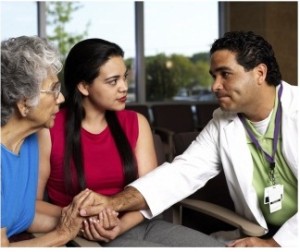The numbers are staggering, and the emotional fallout has yet to be even remotely addressed.  As healthcare systems seek to devise proactive measures aimed at curtailing, and hopefully eliminating, preventable patient harm resulting from medical care, the fact remains — even in the safest of systems, things can, and often do, go wrong.
As healthcare systems seek to devise proactive measures aimed at curtailing, and hopefully eliminating, preventable patient harm resulting from medical care, the fact remains — even in the safest of systems, things can, and often do, go wrong.
The iconic Institute of Medicine (IOM) report of 1999 estimated that as many as 98,000 people die annually in the U.S. from medical errors. Recently, a study in the Journal of Patient Safety indicated that the actual numbers may, in fact, be much higher – between 210,000 and 440,000 patients suffer preventable medical harm in U.S. hospitals annually which contributes to their death. And, these figures fail to take into account those who are harmed but survive.
Behind the stunning numbers are people – mothers and fathers, sons and daughters. Family members who have lost loved ones. People who are living with life altering illness and chronic pain. Some who have lost jobs and some who are no longer able to work. Their stories are as unique as their fingerprints, but they share a common emotional experience. They are part of a group for which they did not seek membership.
I have been the Communications Director at MITSS (Medically Induced Trauma Support Services) for the past 10-plus years. Our mission is To Support Healing and Restore Hope to those who have been emotionally impacted by adverse medical events. While many in the patient safety movement seek to repair the broken systems that all too frequently lead to harm, our focus is on the emotional well-being of the patient, family member, and clinician involved.
In recent years, we have witnessed a shift in the way healthcare organizations deal with the fallout from adverse events. A handful of institutions and initiatives, notably the University of Michigan Health System and the CARe (Communication, Apology and Resolution) Program here in Massachusetts, have sought to change the way these events are managed by promoting a culture of open and honest disclosure, sincere apology, and early offer when it is warranted. Support for patients and families, as well as the clinicians involved, is widely considered to be an integral piece to the success of such a program.
Currently, much work is being done around the “second victim” – a term referring to the clinician involved in a bad outcome. Back in 2011, MITSS brought together a blue ribbon panel of experts and developed the Clinician Support Tool Kit for Healthcare. As one of its features, the toolkit contains a fairly extensive bibliography dealing with the second victim phenomenon. In fact, more and more healthcare organizations are reaching out to MITSS looking to develop their own internal programs to support clinicians.
But, what about the “first victim” – the patient or family member who has experienced harm? Unfortunately, there is no extensive bibliography dealing with the subject. There are no established best practices, no movement afoot to operationalize patient support programs. Ironically, at least to us, it is not uncommon to hear, “We are doing pretty well with the patients and families, but we need to do a better job taking care of our staff.” While it may be true that organizations need to do a better job “caring for the caregivers,” they may well be inadvertently missing the boat and neglecting the needs of the first victim.
MITSS has supported hundreds of patients and families over the years by providing telephone support, one-on-one counseling, and facilitating educational support groups. We are based in Boston, Mass, but our reach has spanned the U.S. and around the globe. We are a patient-founded, patient-led organization, and our support mechanisms have been informed by the people we serve, consistently incorporating patient and family feedback, and building it into our processes. We have also captured significant data on the patient experience through an online survey tool attached to our website.
On the afternoon of November 14, 2013, MITSS will be presenting Supporting Patients and Families Following Medical Harm – Are We Missing the Boat? Featured on the half-day program will be two prominent researchers and a patient who experienced significant harm. Also presenting will be Susan LaFarge, PsyD, Clinical Psychologist, who developed and facilitates the MITSS 10-week educational support group curriculum. The program is free of charge, but pre-registration is required. Click here for more information and to sign up.
It is time to dig deeper. Engaging patients and families following harm may be one of the most difficult challenges that healthcare organizations can face. But, we need to do it anyway.





1 Comment
Great post by Winnie Tobin of MITSS. I couldn’t agree more! Hospitals are not remembering the first victim and their family as they’ve promised to do after hearing many of our stories over and over again. Create that safety net for them and make it count. It heals to know that those who caused the harm cared. Don’t forget us…or think we’ll disappear. We can help.
For a pediatric perspective, see our recent PIPSQC blog post and upcoming surveys: “Partnering With Parents to Save Children’s Lives” http://tinyurl.com/lulqlve
Also, how families can help your healthcare organization- “The Heart of Health Care: Parents’ Perspectives on Patient Safety” http://tinyurl.com/ltmy87c
Now, let’s dig deeper and make it count! Register!